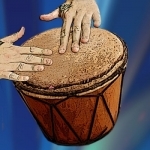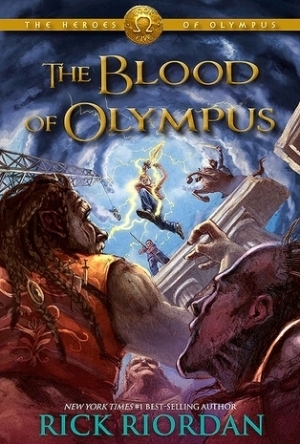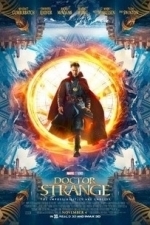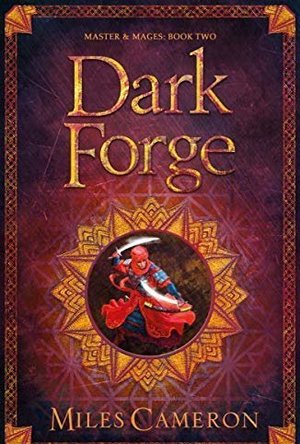Merissa (13749 KP) created a post
Mar 15, 2021
EmersonRose (320 KP) rated The Blood of Olympus (The Heroes of Olympus #5) in Books
Nov 20, 2019
Alright, now that that is out of the way, let me begin. This book is called Blood of Olympus, it is the fifth and final book in the Heroes of Olympus series (if you should ever desire to read these book, I would recommend starting with the Percy Jackson, and the Olympians series as this series is a sequel series. The author of this book is a writer by the name of Rick Riordan. This book is a young adult fantasy novel. It is the final chapter of the adventure of a group of seven young adults who happen to be demigods, modern day children of the ancient gods of Greece and Rome. This adventure, like many great adventures, is a race to save the world.
For me, the initial draw of the book was that it is a fantasy novel, which is one of my favorite genres, and its focus is on Greek Mythology, something of an obsession of mine. The mythology in these books may not always satisfy all mythology nerds because they do take liberties in how the myths are presented in order to showcase how they might have changed to fit in the modern day world. The way Riordan chooses to represent mythology is often fairly close to original stories, showing that he spends the time researching the myths, and they are clever, funny, and entertaining.
As I read the books, I found myself drawn to the relationships between the characters, not surprising as characters are a key draw for me in literature. By this point in the series, the relationships became especially interesting because you have known some of the characters for ten books now while others are just in their second or third book appearances. The central characters have grown into a substantial group that each have their own unique backgrounds, personalities, and even mythologies that create intriguing tension and bonds. Their bonds grow stronger as they work through new struggles and adventures with the added drama of them being a group of teenagers, which obviously means that there is a fair bit of romance involved as well.
For me personally to get into a story the most important aspect is to be very invested in61w3pqVMCZL._US230_ the characters. This does not mean I have to like them, but I do need to be completely invested in what happens to them. If the storyteller can do this, then I will most likely binge the entire thing whether book, movie, tv show, comic…. regardless whether or not the story is good or my normal cup of tea. This was definitely an initial draw in me reading this second series because I was already very invested in both Percy and Annabeth’s characters, who are among the main characters in this series and the main characters in the previous series. The majority of the characters in this book did capture my emotional investment, which kept me reading all five books, but there were a few I found lacking. Maybe I am the only one who felt this, but I thought that Riordan didn’t spend enough time on some of the new characters to pull me into their plots. Unfortunately, this is common in stories that feature such a large cast of main characters, had the time on each character been even plot points might not have been as successful and honestly, I might have been annoyed to not spend as much time on my favorites.
I would be lying if I were to say this was my favorite book in this series but I still greatly enjoyed it. Besides my problem with not feeling emotionally invested enough in some of the characters, I really do not have any other complaints about the book. It was successful in finishing this series story arc while having plenty of plot of its own. And it ended wrapping just about everything up so that I was satisfied, but open enough to still want more. If this were a regular series, the leftover cliffhangers would be dreadful! But Riordan writes series that capture over-arching plots but that connect to his other book series in this same world, so an ending like this simply promising more books about these characters in another series.
Overall I liked this book, if young adult fantasy is your genre, then I would definitely suggest looking at these books. They do what I require of my urban fantasy stories, mix magic into our real world enough that a part of me can almost believe it could be possible. Characters, world, and plot flowing together into an engaging story that obviously captured my interest enough to read ten and counting of these novels.
*This was a review I found while cleaning that I write a few years ago. I have since read two more Riordan novels and counting! I love the way Riordan writes and appreciate how he seems to continually grow as a writer, always tackling new issues and allowing his characters to have growth. Annabeth and Percy especially, they are two of my all-time favorite characters. I highly recommend reading his books!
Movie Metropolis (309 KP) rated Doctor Strange (2016) in Movies
Jun 10, 2019 (Updated Jun 11, 2019)
Now, one of the biggest film studios in the world takes on its biggest gamble yet – more so than Guardians of the Galaxy was, and that’s saying something! But does Doctor Strange hit all the right notes or are we looking at Marvel’s first true dog’s dinner?
Dr. Stephen Strange’s (Benedict Cumberbatch) life changes after a car accident robs him of the use of his hands. When traditional medicine fails him, he looks for healing, and hope, in a mysterious enclave. He quickly learns that the enclave is at the front line of a battle against unseen dark forces bent on destroying reality. Before long, Strange is forced to choose between his life of fortune and status or leave it all behind to defend the world as the most powerful sorcerer in existence.
Harry Potter meets Inception as director Scott Derrickson’s ambitious vision for the Marvel comic comes to life on screen. It’s one of the best looking films in the studio’s catalogue, and one that’s definitely worth paying the extra dosh for the 3D version.
When it comes to acting, the cast is, on the whole, very good. Tilda Swinton is perhaps the best character in the entire film as the ‘Ancient One’. She’s an incredible actress given the right material and despite being thinly written, she shines in this intriguing role. The rest of the cast, including Benedict Wong, Chiwetel Ejiofor and Rachel McAdams are poorly realised and make no measurable impact on the final cut.
Mads Mikkelsen’s portrayal of Kaecilius, the film’s main antagonist, is good but Marvel continuously struggle to create interesting villains and unfortunately, Mikkelsen falls into that pot, though he’s not quite as bad as Oscar Issac’s Apocalypse from this year’s X-Men entry. Let’s hope Mikkelsen is given more time to shine in Rogue One: A Star Wars Story in December.
Assessing Benedict Cumberbatch’s performance as the titular character is a little more difficult. On the one hand, he plays the deeply unlikeable Stephen Strange with the same class he brings to all his other personas; and then on the other, he seems at odds with Marvel’s global universe – the comedic elements almost feeling a little too forced, that is, in comparison to Chris Hemsworth’s mighty Thor or Paul Rudd’s sarcastic Ant-Man.
Luckily, the engaging special effects and magical story ensure Doctor Strange’s negatives are kept few and far between. Superhero films are beginning to grow a little tiresome with at least six being released this year alone, but the unique plot to this one makes certain you won’t have seen anything like it in the genre before.
Overall, Doctor Strange is a pleasing addition to the MCU, though one that isn’t quite as special as Guardians of the Galaxy was in 2014. It’s nice to have yet another character to join the growing list of Avengers but it’ll take another solo outing for Benedict Cumberbatch’s surgeon to make any sort of lasting impact.
https://moviemetropolis.net/2016/10/27/marvel-meets-inception-doctor-strange-review/
Ross (3284 KP) rated Dark Forge (Masters & Mages #2) in Books
Jan 30, 2019
Dark Forge follows on from Cold Iron and sees the hero, Aranthur, travelling through the desert-lands battling against "The Pure", a group of magikal fundamentalists that believe access to the world's magik should be restricted to those of noble birth.
As a rare treat, the book starts with a lengthy prologue telling of a group of mercenaries working for the Pure attempting to storm an ancient site and gain ownership of a magical artefact. A few dozen pages break from Aranthur was welcome and this was an exciting part of the story. As with the first book, the narrative style is something of a barrier to me, all the mundane details of clothing, horses, weapons are expounded ad nauseum, but when something important happens, or some new magik is used suddenly it's all very vague and hand-wavey.
That brings us back to Aranthur. We pick up with him and his crew acting as messengers for the General's army, relaying messages back and forth across the divisions of the forces. At times this changes to acting as advance scouts, other times running messages through the middle of battles. Given the rest of the story is told from Aranthur's PoV alone, this means we can see a great deal of the action through his eyes.
At long last we are treated to something of an inventory from Aranthur, as he goes over the magik he currently knows and their purpose. This felt like a brilliant improvement over book 1, where he just did a magik thing somehow. However this is short lived as over the course of the book odd words are used, with little explanation (and always in italics, suggesting they are important words but for the life of me I couldn't remember what most of them were).
A major failing for this book for me was that despite all being from one character's PoV, and we hear plenty of his thoughts and feelings, we are not privy to his experimentation with magik or some of his suspicions and theories (he suddenly in the heat of battle tries something he had been thinking about and it works - would have been so much more effective if there had been any hint of this previously). Similarly, so much of it is all metaphysical nonsense which I can't stand and can only see it as a cheap way out for an author as you don't have to explain things if they're all mystical.
The book reads like maybe the 5th in a series, where all the magical aspects and parts and peoples of the world have been solidly embedded, rather than book 2 where the world-building is being done almost real-time and there is something of a making-it-up-as-he-goes-along feel.
The overarching plot of the book is solid, and while I would have liked to see more traditional combat like the first book, and less magical/mystical stuff the action was plentiful and reasonably well told.
As with the first book, its only about 400 pages but felt like so much more to me, and it really was a bit of a slog at times.
I will finish this series with the conclusion when it is released but have enjoyed other series a lot more.

Bitcoin Knowledge Podcast – Learn about blockchain and fintech
Podcast
Interviews with the top people in the Bitcoin world about blockchain and fintech. Your host is Trace...

Genesis
Sebastiao Salgado and Lella Salgado
Book
Human (and) nature. Epic journeys to the ends of the earth: Salgado's opus on our planet in its...
Ivana A. | Diary of Difference (1171 KP) rated 100 Speeches that roused the world in Books
Oct 5, 2020
<a href="https://diaryofdifference.com/">Blog</a>; | <a href="https://www.facebook.com/diaryofdifference/">Facebook</a>; | <a href="https://twitter.com/DiaryDifference">Twitter</a>; | <a href="https://www.instagram.com/diaryofdifference/">Instagram</a>; | <a href="https://www.pinterest.co.uk/diaryofdifference/pins/">Pinterest</a>;
<img src="https://i1.wp.com/diaryofdifference.com/wp-content/uploads/2020/09/Book-Review-Banner-86.png?resize=768%2C432&ssl=1"/>;
<b><i>Boy, oh boy, do I have mixed feelings about 100 Speeches That Roused the World by Colin Salter.</i></b>
The reason I picked up this book is because I have always been in love with speeches and orators. I believe that the ability to speak in front of an audience is a very powerful skill, and I admire it as such. Many great leaders and many successful people use this skill to make people listen and act in a way they want them to. That is where the true art is, and I really admire this aspect. The fact that you can listen to two or more people tell you the same thing, and only one being able to convince you to do something or believe in something they say is a true gift.
Which takes us to the second reason I picked this book up. To find out more about the people who had this ability in history and made a difference in one way or another. And for the most part, I was pleased. There are speeches of many great (and not so great) leaders out there, speeches of people that made breakthroughs in their fields, people who fought for their rights.
<b><i>But there was a pattern I noticed in these 100 speeches.</i></b>
Most of these speeches were either from the UK or USA. And most of them were presidents, prime ministers,royalty or leaders in any other way. And all their speeches were speeches during the wars. Telling their people to fight for their nations.
And I have nothing against those speeches. They were perfect for their time and they did their purpose at the time. What I had a problem with is that there were so many more important times in history when a speech was made and it represented a change.
What about all the speeches that philosophers have given in ancient Rome and Greece? For Rome, where is Julius Caesar’s speech to the senate? For Greece, how about the movement for freedom of speech? What about the speeches during humanism and renaissance? What about some of the groundbreaking speeches that scientists have given over the years?
I was a bit disappointed with the format of the book as well, as the speeches were mostly short paragraphs, followed by a full page of the author’s notes, mostly quoting the same speech again. It was very helpful to know the background of how the speech made a difference in the world, but when most of those speeches didn’t really make any difference, and I was involved in a history lesson of the most important wars in history, it wasn’t much of a fun read.
<b><i>To conclude, this book wasn’t what I was looking for, both format and content wise. The 100 Speeches mentioned in this book didn’t do enough justice for me. I believe that title is misleading, but I can also understand that some people can still learn a lot by reading it.</i></b>

Kids Yogaverse: I AM LOVE
Health & Fitness and Book
App
Kids Yogaverse: I AM LOVE is “Highly recommended” by the US Surgeon General as a healthy app...

Wolf Online
Games
App
[Game Overview] A cruel and gruesome war among three wolf species begins. A real network survival...




